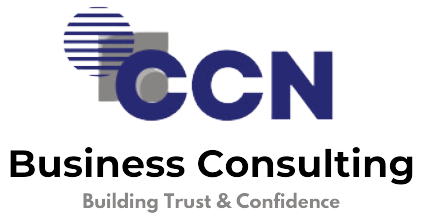Self-Employed Tax Filing in Detroit, MI: A Complete Guide for Freelancers and Small Business Owners
The city of Detroit, Michigan, has always been a hub of entrepreneurship and innovation. Today, more individuals are turning to self-employment—whether as freelancers, gig workers, independent contractors, or small business owners. With flexibility and independence, however, comes the responsibility of managing your own taxes. Unlike traditional employees, self-employed individuals must navigate a more complex tax filing process that includes estimated payments, self-employment taxes, and various deductions.
If you’ve been searching for Self-employed tax filing Detroit MI, this guide is designed to help you understand the essentials. From IRS requirements to Michigan-specific tax rules, and from common mistakes to expert tips, we’ll walk you through everything you need to know.
Why Self-Employed Tax Filing Matters in Detroit
Self-employed professionals don’t have taxes withheld automatically from their paychecks. Instead, they must track income, calculate taxes, and submit payments on their own. This makes tax filing a critical responsibility for anyone working independently in Detroit.
Proper tax filing helps you:
- Stay compliant with IRS and Michigan Department of Treasury requirements.
- Avoid costly penalties or interest from late payments.
- Claim deductions that reduce your taxable income.
- Build financial credibility when applying for loans or business opportunities.
By working with experts, you can ensure accuracy and peace of mind, freeing up your time to focus on growing your business.
Who Is Considered Self-Employed in Detroit, MI?

If you work for yourself and generate income outside of traditional employment, you are considered self-employed. This includes:
- Freelancers and Contractors – Writers, designers, IT consultants, and more.
- Small Business Owners – Sole proprietors running local shops or service businesses.
- Gig Economy Workers – Rideshare drivers, delivery workers, and other platform-based earners.
- Independent Consultants – Professionals offering specialized services without being on payroll.
Regardless of the type, self-employed individuals in Detroit must take charge of their own tax obligations.
Key Tax Obligations for the Self-Employed in Detroit

1. Federal Income Taxes
Self-employed individuals must report all earnings to the IRS. Since no employer withholds taxes, you are responsible for paying income taxes yourself, usually in quarterly installments.
2. Self-Employment Tax
This tax covers Social Security and Medicare contributions. In 2024, the self-employment tax rate is 15.3%, which includes 12.4% for Social Security and 2.9% for Medicare. This is in addition to federal income taxes.
3. Michigan State Income Tax
Detroit residents must also pay Michigan state income tax, which is a flat rate of 4.25%. This applies to all taxable income after federal adjustments.
4. Detroit City Income Tax
Residents of Detroit pay an additional 2.4% city income tax, while non-residents who earn income in Detroit pay 1.2%. This local tax makes filing in Detroit more complex compared to other Michigan cities.
Common Challenges in Self-Employed Tax Filing
1. Tracking Irregular Income
Unlike salaried employees, self-employed individuals often experience fluctuating monthly income. This makes estimating taxes difficult and increases the risk of underpayment.
2. Keeping Records of Business Expenses
Every deductible expense must be backed by proper documentation. Many freelancers lose out on deductions simply because they don’t maintain organized records.
3. Understanding Quarterly Payments
The IRS requires estimated taxes to be paid quarterly. Missing deadlines can result in penalties, even if you eventually pay in full at year-end.
4. Managing Dual Responsibilities
As a self-employed professional, you wear many hats—business owner, marketer, service provider, and bookkeeper. Tax filing can easily become overwhelming without professional help.
Tax Deductions for Self-Employed Professionals in Detroit
One of the advantages of being self-employed is the ability to claim deductions that lower your taxable income. Some common deductions include:
- Home Office Deduction – If you use part of your home exclusively for business.
- Vehicle Expenses – Mileage, fuel, or actual expenses if used for business purposes.
- Supplies and Equipment – Computers, software, and office materials.
- Health Insurance Premiums – For self-employed individuals paying their own coverage.
- Retirement Contributions – Payments into SEP IRAs or Solo 401(k)s.
Maximizing deductions requires proper bookkeeping and knowledge of IRS rules.
Benefits of Hiring a Tax Professional in Detroit

1. Compliance with IRS and Local Laws
Tax professionals stay updated on IRS guidelines, Michigan state requirements, and Detroit city taxes, ensuring you remain compliant at every level.
2. Maximizing Deductions
An expert can identify deductions you might miss on your own, potentially saving you thousands of dollars.
3. Reducing Stress
Tax filing can be stressful when juggling deadlines and paperwork. Hiring professionals allows you to focus on running your business while leaving the complexities to experts.
4. Avoiding Costly Errors
Even small mistakes in tax filing can lead to penalties or audits. A certified preparer ensures accuracy and reliability.
How CCN Business Consulting Helps with Self-Employed Tax Filing
At CCN Business Consulting, we specialize in helping Detroit’s self-employed professionals stay compliant and maximize their tax savings. Our services include:
- Personalized Tax Filing Assistance – Tailored to freelancers, gig workers, and business owners.
- Bookkeeping and Record Management – Keeping your income and expenses organized.
- Quarterly Tax Planning – Helping you estimate and pay taxes on time.
- Year-Round Support – Not just at tax season, but ongoing advice for better financial management.
You can learn more about our full range of services designed for Detroit entrepreneurs.
Steps to File Self-Employed Taxes in Detroit
- Organize Records – Collect all 1099 forms, receipts, and business expense records.
- Calculate Income – Add up all revenue sources for the year.
- Deduct Business Expenses – Apply eligible deductions to lower taxable income.
- Pay Self-Employment Tax – Calculate and include Social Security and Medicare contributions.
- File Federal, State, and City Returns – Ensure all levels are filed accurately.
- Plan for Next Year – Set aside money each month for estimated quarterly payments.
With professional guidance, this process becomes much smoother.
Frequently Asked Questions
1. Do I need to pay taxes if I earn less than $400 from self-employment?
If you earn less than $400, you don’t need to pay self-employment tax. However, you may still need to report income.
2. How often do I need to pay estimated taxes?
Quarterly—April, June, September, and January. Missing payments may lead to penalties.
3. Can I file self-employed taxes myself?
Yes, but it can be complex. Many Detroit professionals prefer working with tax experts to avoid errors and maximize deductions.
4. What if I can’t pay my full tax bill?
You can apply for an installment plan with the IRS, but timely communication is key. A tax professional can guide you through the process.
Final Thoughts
Being self-employed in Detroit, MI, comes with incredible opportunities—but also greater responsibilities when it comes to tax filing. By understanding your obligations, keeping records organized, and seeking professional help, you can turn tax season from a stressful chore into a smooth, manageable process.
If you’re looking for expert assistance with Self-employed tax filing Detroit MI, CCN Business Consulting is here to help. With our local expertise, certified professionals, and personalized approach, we make sure your taxes are filed correctly and on time—every time.







